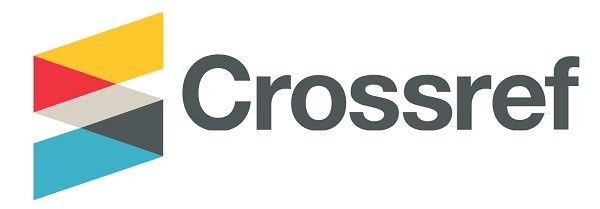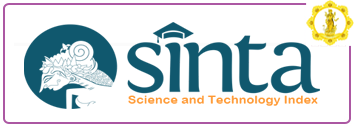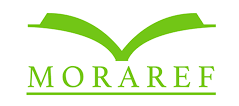Regulasi Emosi Sebagai Pembentukan Ketahanan Mental Untuk Meningkatkan Mutu Produktivitas Kerja Fungsionaris Lembaga Kemahasiswaan
DOI:
https://doi.org/10.25078/jpm.v6i2.1476Keywords:
Work Productivity, Emotional Regulation, Student CouncilAbstract
This study is based on the phenomenon of lack of work productivity that occurs in college students who follow the activities of the organization of the student council. College students still lack the proper emotional management to carry out student council activities, thus affecting the process and the work involved. Considering the problem with the organization of student council functionary, it will require interventions to increase the productivity of the work, which is means of emotional regulation training as a form of mental endurance. The purpose of this study is to know the effectiveness of emotional regulation as a mental endurance of the productivity of members the organization of student council functionality. The productivity scale of their functionary work is used to collect pre-test and post-test data. Based on the test of signed-rank on Wilxocon Statistics, there is a value of 3.923 with a significant 0,000 (p<0.05). This means that effective emotional regulation training increases the productivity of the functionality of an individual within who has good emotional regulation, makes the productive person in fulfilling his duties and functions, and able to be a superior resource, synergy, and competitive
Downloads
References
Agola, J. E., & Ongori, H. (2009). An assessment of academic stress among undergraduate students : the case of university of Botswana. Educational Research and Review, 4 (2), 63-70.
Azwar, S. (2012). Penyusunan skala psikologi. Edisi Ke-2. Yogyakarta: Pustaka Pelajar.
Byington, E., & Feles, W. (2010). Why do IQ score predict job performance? : an alternative, sociological explanation. Research in Organizational Behavior, 30, 175-202
Gross, J. J. (2014). Handbook of emotion regulation. Second Edition. New York : The Guilford Press.
Gruyak, A., Gross, J. J., & Etkin, A. (2011). Explicit and implicit emotion regulation : a dual-process framework. Cognition and Emotion, 25 (3), 400-412. Doi:10.1080/02699931.2010.544160.
Hanaysha, J. (2016). Testing the effects of employee empowerment, teamwork, employee training on employee productivity in higher education sector. International Journal of Learning and Development, 6 (1), 164-178. Doi:10.5296/ijld.v6i1.9200.
John, C. L. (2003). Mood regulation and emotional intelligence : individual differences. Journal of Personality and Social Psychology, 84 (3), 594-607. Doi:10.1037//0022-3514.84.3.594
Kariv, D., & Heiman, T. (2005). Task-oriented versus emotion-oriented coping strategies : the cas of college students. College Student Journal, 39 (1), 72-85.
McCleskey, J. A. (2014). Emotional intelligence and leadership : a review of the progress, controversy, and criticism. International Journal of Organizational Analysis, 22 (1), 76-93. Doi:10.1108/IJOA-03-2012-0568.
Newstorm, J. W. (2011). Organizational behavior : human behavior at work. 13th Edition. New York : McGraw-Hill.
Niven, K., Sprigg, C. A., & Armitage, C. J. (2013). Does emotion regulation protect employees from the negatif effects of workplace aggression?. European Journal of Work and Organizational Psychology, 22 (1), 88-106. Doi:10.1080/1359432X.2011.626200.
Pool, L. D., & Sewell, P. (2007). The key to employability : developing a practical model of graduate employability. Education and Training, 49 (4), 277-289. Doi:10.1108/00400910710754435.
Shadish, W. R., Cook, T. D., & Campbell, D. T. (2002). Experimental and quasi-experimental design for generalized causal inference. Boston : Houghton Mifflin Co.
Shalvendy, G. (2012). Handbook of human factors and ergonomics. 4rd Edition. New Jersey : John Willey And Sons.
Singh, R. (2012). Impacts of training practices on employees productivity : a comparative studies. Interscience Management Review (IMR), 2 (2), 89-95.
Strongman, K. T. (2003). The psychology of emotion from everyday life to theory. 5th Edition. New York : McGraw-Hill.
Thomas, J., Raynor, M., & Al-Marzooqi, A. (2012). Marital status and gender as predictors of undergraduate academic performance : a united Arab Emirates context. Learning and Teaching in Higher Education : Gulf Perspectives, 9 (2), 1-9. Doi:10.18538/lthe.v9.n2.80.
Vingershoots, Ad., Nyklicek, I., & Denollet, J. (2008). Emotion regulation : conceptual and clinical issues. Netherlands : Springer.









